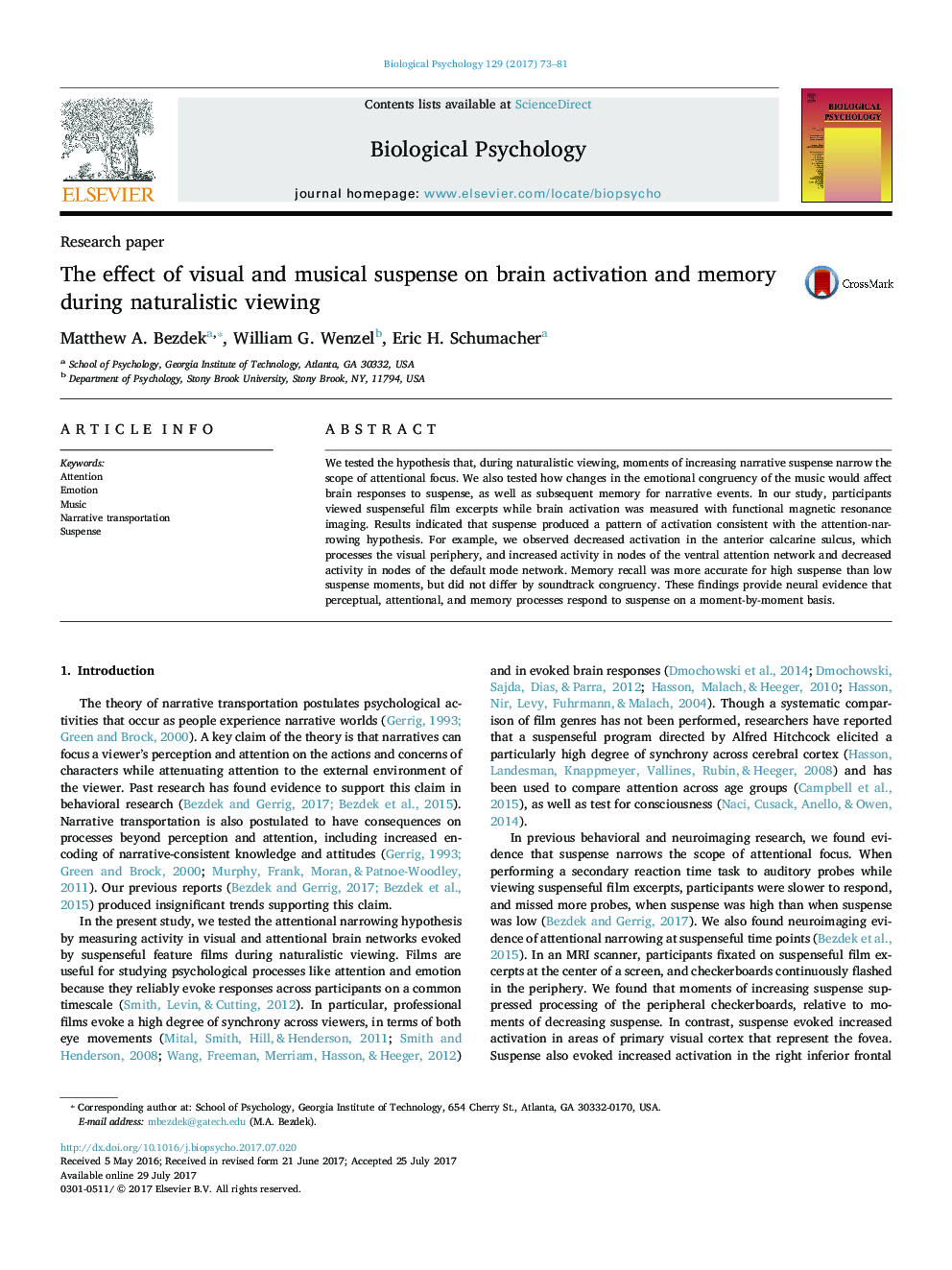| Article ID | Journal | Published Year | Pages | File Type |
|---|---|---|---|---|
| 5040343 | Biological Psychology | 2017 | 9 Pages |
â¢During naturalistic viewing, suspense suppressed peripheral visual processing.â¢Suspense produced increases in the stimulus-driven ventral attention network.â¢There were concurrent decreases in the internally focused default-mode network.â¢Recall performance was better for events at high versus low suspense moments.
We tested the hypothesis that, during naturalistic viewing, moments of increasing narrative suspense narrow the scope of attentional focus. We also tested how changes in the emotional congruency of the music would affect brain responses to suspense, as well as subsequent memory for narrative events. In our study, participants viewed suspenseful film excerpts while brain activation was measured with functional magnetic resonance imaging. Results indicated that suspense produced a pattern of activation consistent with the attention-narrowing hypothesis. For example, we observed decreased activation in the anterior calcarine sulcus, which processes the visual periphery, and increased activity in nodes of the ventral attention network and decreased activity in nodes of the default mode network. Memory recall was more accurate for high suspense than low suspense moments, but did not differ by soundtrack congruency. These findings provide neural evidence that perceptual, attentional, and memory processes respond to suspense on a moment-by-moment basis.
